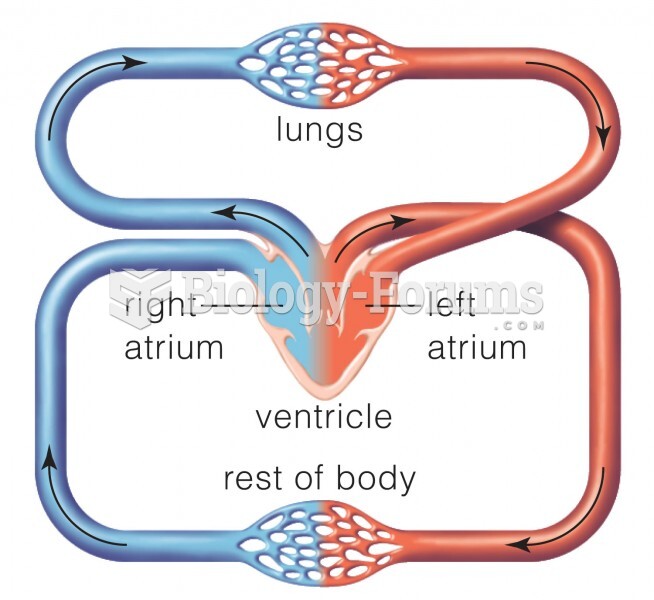|
|
|
In most cases, kidneys can recover from almost complete loss of function, such as in acute kidney (renal) failure.
The average older adult in the United States takes five prescription drugs per day. Half of these drugs contain a sedative. Alcohol should therefore be avoided by most senior citizens because of the dangerous interactions between alcohol and sedatives.
Adult head lice are gray, about ? inch long, and often have a tiny dot on their backs. A female can lay between 50 and 150 eggs within the several weeks that she is alive. They feed on human blood.
The human body produces and destroys 15 million blood cells every second.
ACTH levels are normally highest in the early morning (between 6 and 8 A.M.) and lowest in the evening (between 6 and 11 P.M.). Therefore, a doctor who suspects abnormal levels looks for low ACTH in the morning and high ACTH in the evening.
 In 2009, historian Woody Holton described how Abigail Adams shrewdly invested in the Continental Con
In 2009, historian Woody Holton described how Abigail Adams shrewdly invested in the Continental Con
 skeletal muscle consists of a group of fibers held together by connective tissue. It is enclosed in ...
skeletal muscle consists of a group of fibers held together by connective tissue. It is enclosed in ...





